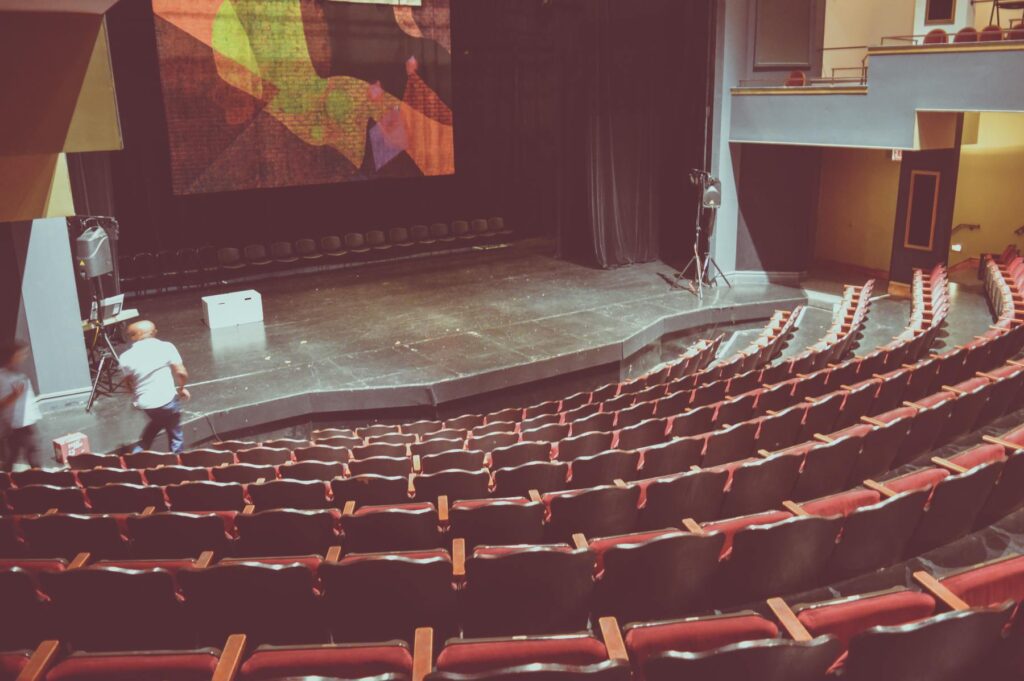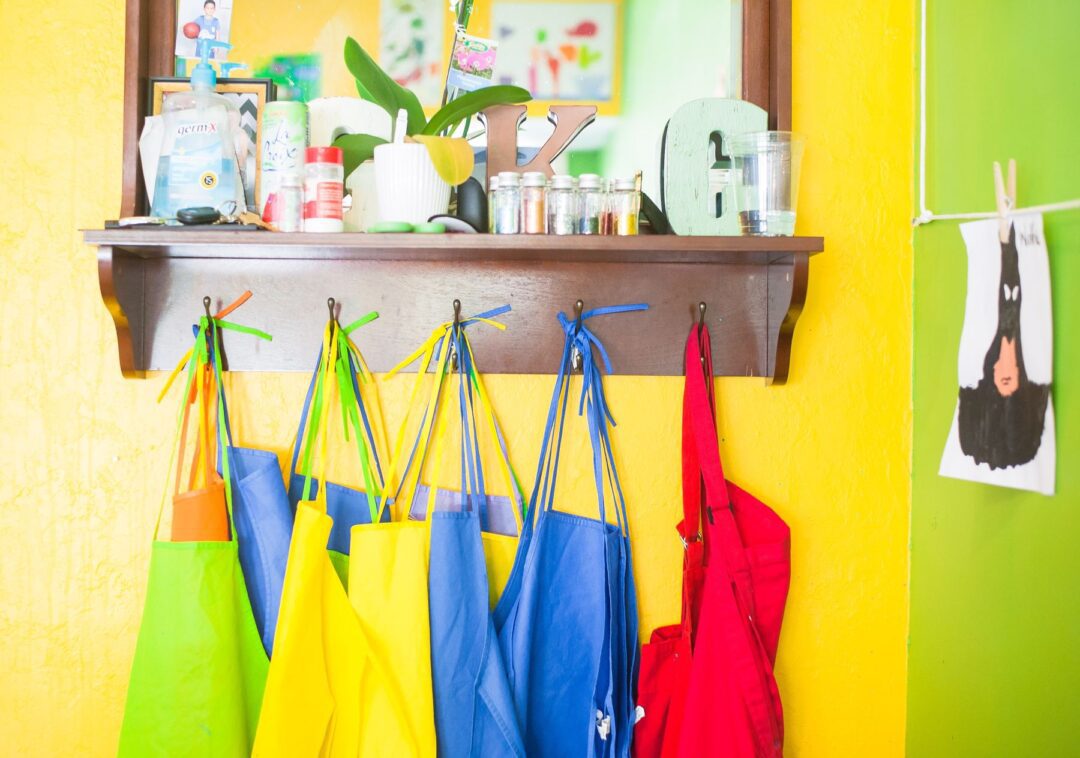Drama is needed in schools now more than ever


After the period of lockdown away from their friends and social support networks, getting back to a Drama classroom will allow students to reconnect socially, emotionally and creatively. Even if we are physically socially-distanced, the Drama classroom is a safe space where students can talk about their emotions, their lived experiences, developing empathy for others who may have suffered bereavements in this terrible pandemic, as well as developing the key skills needed for their futures.
Year after year when students create their own devised performances – meaning drama which students create themselves from a stimulus – we see pieces created about terrorism, or poverty, or Grenfell, or sexism, or teenage mental health. Drama provides a space for students to make sense of the world around them, and to explore their emotional, moral and ethical responses to events in, and beyond, their lived experience. In 2021, will we have a raft of Drama performances about a devastating pandemic in a strange, dystopian world where some people baked lots of sourdough and did daily yoga in the garden whilst others suffered huge personal losses – of jobs, family members, income, education, and more? Possibly, and if that’s what students want to explore we must let them. Similarly, students may want to explore George Floyd’s death and the subsequent protests and Black Lives Matter movement, and as Drama teachers we can provide a space for this socio-cultural learning. It is right and just that young people will want to understand more about what has happened during this strange and deeply disconcerting time, and it is important that all young people are informed about the injustices and inequalities that exist in the world, in order to change them. Drama provides a space for this to happen. As Boal said, “theatre is a form of knowledge; it should and can also be a means of transforming society.” (Boal, 2002, p.16)
I did a wonderful online CPD session recently hosted by National Drama, led by Kerry Frampton, artistic director of Splendid Productions, a company who create political theatre and tour their work to schools. She talked about theatre being political, and how all young people need to be political in their theatre making. Brecht believed “a play could enable the spectator to devise ways to change the world into a place fit for people to live in” (Gordon, 2017). I couldn’t agree more, and this is what theatre always has been about. When the ancient Athenians were forming their polis, they were also forming theatres which “made the irresolvable arguments of the polis visible in human form and aroused both intellectual and emotional engagement.” (Neelands 2015) Tragedies highlighted the errors of judgement humans made, and warned the audience against hubris, greed, and tyranny. The Satyr plays ridiculed corruption and elitism. To make a difference in this world our young people need a voice, and Drama can provide that. We should be encouraging our young people to speak out about and engage with the injustices they have no doubt learned more about during the last four months. We can do this in Drama.
The news is telling us that we are heading for the worst recession in recent years, and that the UK unemployment outlook is poor. So, in addition to our young people facing a challenging year ahead in education as we grapple with a ‘new normal’ and attempt to get all students back to school and prepared for exams, they are also facing unprecedented challenges in their longer-term futures as we deal with the after-affects of this pandemic on society. Undoubtedly, they need to be resilient. They also will need to be confident and creative thinkers. A new report published on 25th June by London First and Lloyds Banking Group highlighted the need for a post-COVID recovery plan and re-skilling a workforce to be ‘future-fit.’ One point in the action plan argues for placing more importance on transferable ‘soft’ skills in the new economy, skills identified as “emotional intelligence; complex problem solving; creativity; communication; collaboration; leadership and management; and resilience” (London First, 2020). Whilst I take issue with the common reference to these being ‘soft’ skills (there’s nothing soft about being resilient), I am pleased that the importance of the socio-emotional skillset is being recognised. All of these skills can be developed through the Drama classroom, and indeed through extracurricular Drama activities.
Every year during the process of a school production, I see Drama students developing these skills: students go through an audition process which requires confidence, negotiation, trust, and respect; after three months of rehearsing several times a week, students learn what can result from resilience, perseverance and motivation; working with other students on a scene or song, students learn communication and collaboration; through receiving feedback and being asked to improve their performance students learn humility and reflection.
In the Drama classroom, we read and watch plays and discuss the emotional journeys of characters, delving deep into the characters’ thoughts and feelings – and in doing so students can develop their own emotional intelligence. Empathy, or ‘putting yourself in someone else’s shoes’ as we call it in the classroom, is a key skill used in every drama lesson.
For Drama exams and assessments, students are required to create and perform a piece of theatre, as either an actor, director or designer. In developing this work with their peers (as the work is often done in groups) students are again developing skills in collaboration and communication, as well as leadership and creativity. It can be challenging for young people to direct each other, and we have a lot of conversations in the classroom about how to be a good leader, as well as the importance of teamwork and good listening. Students need to use skills in complex problem solving when making a piece of performance. It’s live theatre – the pressure is on. They need to make artistic decisions on how to show certain narrative events happening; they choreograph their own dance routines and write their own songs; they work out how to get a piece of set from A to B; how to do a costume change in 25 seconds in the dark; what to do if someone forgets a line; they edit and improve their own work; they come up with brilliant creative ways of showing a flood, or an explosion, or a birth on stage.
I am constantly amazed and moved by the resilience, creativity and maturity of the Drama students I teach. Drama offers so much to so many, and I find the opinion that Drama would not be a wise option if a student already had a certain career path in mind very tiresome. Drama is for everyone – computer scientist to construction worker, sales assistant to social worker.
We want our young people to be strong, educated and informed. We want them to emerge from this crisis with the skills needed to be successful, and with the desire to change their world for the better. I can’t think of a better subject to help prepare them for that.









